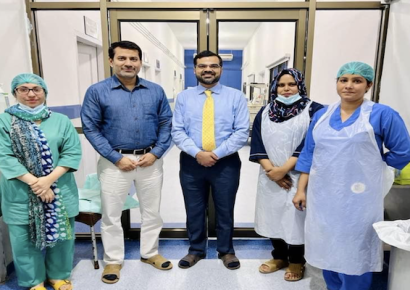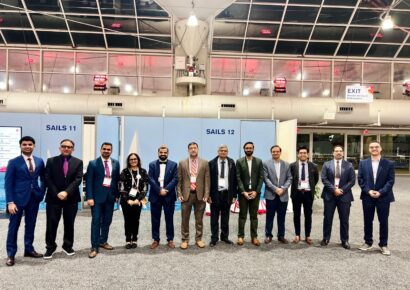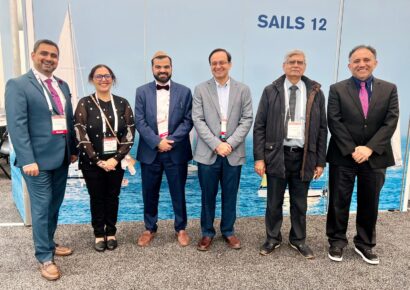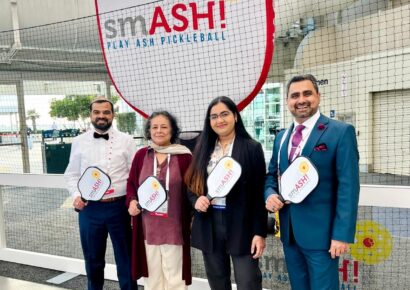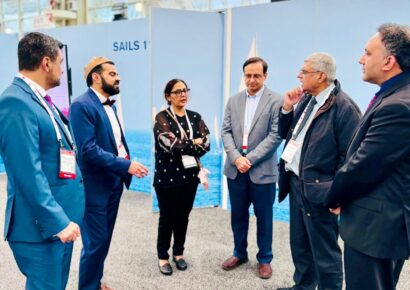Global Transplantation and Cellular Therapy Consortium
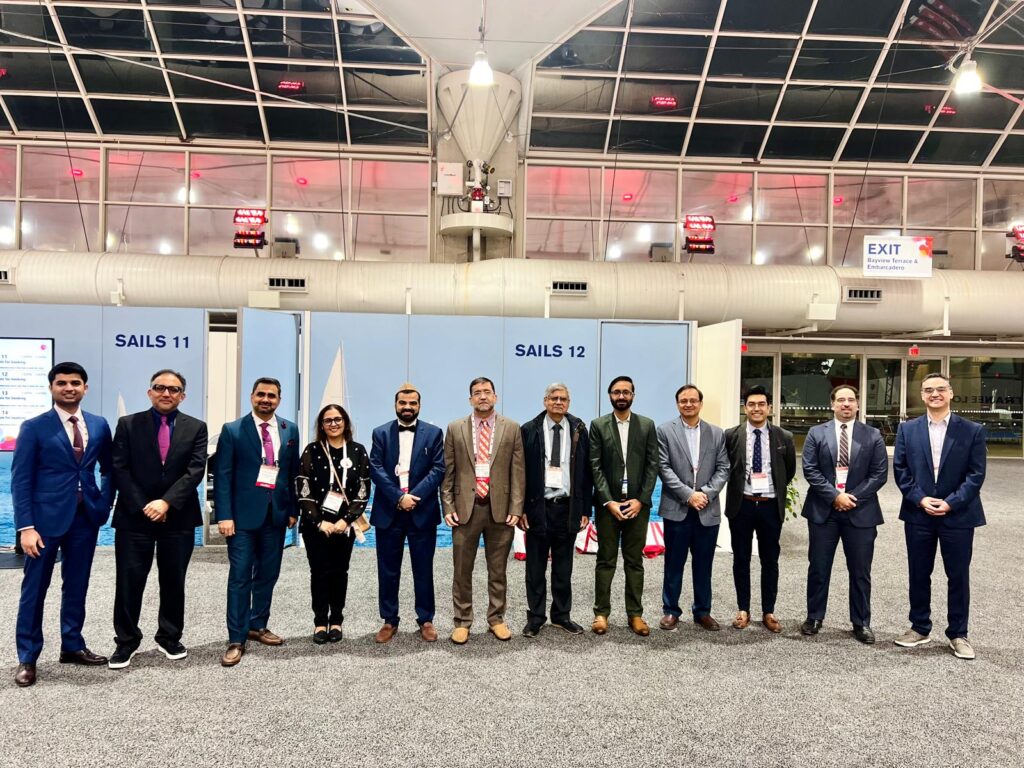
Global Transplantation and Cellular Therapy Consortium (GTCTC)
Enhance healthcare capacity, including infrastructure, education, and training; improve access to care; promote research collaborations; and advocate for policies that support and advance hematopoietic stem cell transplantation and cellular and gene therapies in developing countries, which are life-saving therapies for patients with blood disorders.
Introduction:
The Mikael Rayaan Foundation established the Global Transplantation and Cellular Therapy Consortium (GTCTC), which is dedicated to supporting and advancing hematopoietic stem cell transplantation (HCT) and cell and gene therapies (CGT) in developing countries. HCT/CGT are potentially curative therapies for high-risk blood disorders, including cancers such as leukemia, lymphoma, and multiple myeloma; and other disorders such as sickle cell disease, beta thalassemia, aplastic anemia, multiple sclerosis, and other rheumatologic and autoimmune disorders. However, in developing or low to middle-income countries (LMIC), these life-saving treatments are rarely accessible to the population due to several factors, including lack of trained staff, health system infrastructure, availability of medications, and lack of awareness and affordability. Developing countries are defined based on a low to medium human development index, and LMICs are defined based on a low to medium gross national income. Children with blood disorders comprise a large proportion of patients who get a chance at life with HCT/CGT, and it is critical to improve access and quality of these services worldwide.
The diffusion of healthcare innovations globally should be the basic principle of the “from bench to bedside” approach to translational and clinical research. Building infrastructure and providing training are vital for successful HCT/CGT clinical and research programs in developing countries. Novel cellular and other therapies used to treat hematologic disorders are costly, and only about a quarter of the over 200 countries can afford these life-saving therapies. In addition to standard-of-care therapy capacity building, one mechanism to bridge the disparity is by developing research capabilities in the developing world that may enable a large proportion of the global population to receive these therapies, and with the help of sponsors of trials that may provide the drug or cellular therapy.
The consortium will partner with individual faculty, hospitals and health systems to build and improve the capacity to care for patients with blood disorders in developing countries where HCT/CGT is highly needed, and patients cannot afford to travel to other countries to receive treatment. The consortium will collaborate with individual faculty along with centers in the United States, Europe, and the Middle East to improve HCT/CGT globally, including the University of Kansas Medical Center (KUMC), Division of Hematologic Malignancies and Cellular Therapeutics (HMCT), Global Health Program.
Objectives:
- Enhance the expertise of healthcare professionals in developing countries to provide HCT/CGT through infrastructure improvement, training, and education programs.
- Facilitate HCT/CGT research collaborations and promote innovations in developing countries.
- Provide research training and inspire international medical graduates, nurses, technicians, and laboratory staff from developing countries to pursue HCT/CGT careers.
- Improve patient awareness and access to potentially lifesaving HCT/CGT in underserved regions.
- Advocate for policies that support the expansion of the availability and access of HCT/CGT in developing countries.
- Collaborate with partners, key health care institutes, donors, educators, researchers, policymakers, and professional organizations.
Key Activities:
Needs and Resource Assessment:
- Arrange meetings with local partners and conduct surveys to identify the needs and understand the current landscape of HCT/CGT in different regions globally.
- Identify disparities, gaps in access, challenges, and opportunities for improvement.
- Assess the resources needed to support the HCT/CGT programs, including clinical and research infrastructure, trained healthcare professionals, equipment, and funding needs.< >
Partnerships:
- Build partnerships with HCT/CGT healthcare individuals, institutions, government agencies, and non-profit organizations to advance the consortium’s goals and implementation.
- Partner with professional organizations, including American Societies of Hematology (ASH), Transplantation and Cellular Therapy (ASTCT), Gene and Cell Therapy (ASGCT), European Society of Blood and Marrow Transplant (EBMT), and other relevant national and international professional societies.
- Establish collaborations, including the KUMC HMCT Global Health Program and other non-profit organizations.
Clinical Infrastructure:
- Support the establishment of a Foundation for the Accreditation of Cellular Therapy (FACT) or Joint Accreditation Committee of the International Society for Cellular Therapy and the European Group for Blood and Marrow Transplantation (JACIE) accredited HCT center. However, this may only be feasible at an HCT/CGT center with a well-maintained database and transparent reporting of outcomes to the international registries.
Research Infrastructure:
- Support establishing a state-of-the-art clinical trials unit (CTU) with minimal FTE and space requirements, including a research pharmacy.
- Support agreements with a world-class clinical research office (CRO), such as IQVIA or ICON, or develop a local or regional CRO with a track record.
- Support the development of a properly functioning technology transfer office (TTU).
Training and Capacity Building:
- Support HCT/CGT visitor training programs for healthcare professionals in developing countries.
- Develop training initiatives with local institutions, including training program, lectures, and workshops.
- Support the development of standardized clinical guidelines, care paths, and protocols for HCT/CGT to ensure consistency and quality of care across the regions, including indications for therapy, therapeutic interventions/platforms, monitoring, and toxicity management.
- Develop educational programs for HCT/CGT leadership in developing countries regarding national, regional, and international patent laws of cellular therapy products (including vectors, chimeric antigen receptor T cell therapy, and gene therapy), supply chain logistics, the utility of Artificial Intelligence, business planning, and international funding grants and partnerships.
- Assist local programs to conduct weekly, monthly, and quarterly training sessions/lectures/workshops and help arrange annual scientific meetings to showcase research and improve education.
Research and Innovation:
- Foster HCT/CGT research collaborations with institutions in developing countries. How and what to do?
- Support innovation in treatment protocols and techniques through collaborative research projects, pilot studies, and knowledge-sharing initiatives.
- Support initiation of clinical trials evaluating novel and cutting-edge therapies in the developing world.
- Provide research training and inspire young international medical graduates and allied health professionals from developing countries to pursue a career in HCT/CGT.
Patient Access and Support:
- Guide local programs in developing and implementing patient support programs to enhance access to HCT/CGT, including financial assistance programs, transportation support, and patient education initiatives.
- Utilize virtual meeting platforms and telemedicine solutions to provide remote guidance and consultations in challenging cases.
- Support the development of machine learning algorithms for those who cannot afford experts in some areas and establishment of private blockchain for data.
Advocacy and Policy Development:
- Advocate for policies that support the expansion and sustainability of HCT/CGT in developing countries.
- Collaborate with local stakeholders and policymakers to address barriers and facilitate the integration of HCT/CGT into healthcare systems.
- Offer pro bono support to the regulators in the developing world to create strategy documents and establish minimal standards and guidelines for HCT/CGT.
Budget and Funding:
- Funding sources may include grants, partnerships, donations, and collaborative funding arrangements with relevant stakeholders.
- Support budgeting and business planning educational programs for developing countries, including operating and capital expenditures and overheads.
- Support applications for international funding grants for developing countries such as the Gates Foundation, Fogarty grants (National Institutes of Health), and Novo grants.
Evaluation and Monitoring:
- We will implement quality assurance mechanisms to monitor and evaluate the program’s effectiveness, including tracking patient outcomes.
- Key performance indicators will be identified to measure outcomes related to training, patient access, research output, and advocacy efforts.
Sustainability Plan:
- A sustainability plan may include strategies for diversifying funding sources, building local capacity, and establishing partnerships with other organizations sharing the same mission.
- Develop an understanding of basic concepts for research funding and foster partnerships, including VCs (venture capitalists), PE (Private equity) firms, Angel Investors, and LPs (limited partnerships).
Conclusion:
The establishment of the MRF Global Transplantation and Cellular Therapy Consortium to support hematopoietic stem cell transplantation and immune effector cell therapies in developing countries represents a significant opportunity to advance the field and improve blood cancer patient outcomes on a global scale, establish research collaborations, and save lives in underserved regions. Together, we can advance access to these critical treatments and make a meaningful and long-lasting impact in the lives of thousands of blood cancer patients.
Members:
- Muhammad Umair Mushtaq (Abu Mikael), MD. University of Kansas Medical Center, Kansas (Chair) li>
- Shahrukh Hashmi, MD. Mayo Clinic, Minnesota and Abu Dhabi, UAE
- Faiz Anwer, MD. Taussig Cancer Center, Cleveland Clinic, Ohio
- Mehdi Hamdani, MD. Medical College of Wisconsin, Milwaukee, Wisconsin
- Saad Usmani, MD. Memorial Sloan Kettering Cancer Center, New York
- Joseph McGuirk, DO. University of Kansas Medical Center, Kansas
- Sunil Abhyankar, MD. University of Kansas Medical Center, Kansas
- Nausheen Ahmed, MD. University of Kansas Medical Center, Kansas
- Al-Ola Abdallah, MD. University of Kansas Medical Center, Kansas
- Abdulraheem Yacoub, MD. University of Kansas Medical Center, Kansas
- Anurag Singh, MD. University of Kansas Medical Center, Kansas
- Leyla Shune, MD. University of Kansas Medical Center, Kansas
- Rajat Bansal, MD. University of Kansas Medical Center, Kansas
- Uroosa Ibrahim, MD. Icahn School of Medicine at Mount Sinai, New York
- Hira Shaikh, University of Iowa School of Medicine, Iowa
- Peiman Hematti, MD. Medical College of Wisconsin, Milwaukee, Wisconsin
- Muhammad Salman Faisal, MD. University of Oklahoma, Oklahoma
- Moazzam Shahzad, MD. Moffitt Cancer Center, Florida
- Sibgha Gull Chaudhary, MD. St Luke’s Health System, Kansas
- Javed Akram. MD. Former Vice Chancellor, University of Health Sciences, Lahore, Pakistan
Collaborative partners:
- University of Kansas Medical Center, Division of Hematologic Malignancies and Cellular Therapeutics, Global Health Program (Kansas, USA) – a nationally renowned center for hematopoietic cell transplantation and immune effector cell therapies.
- U.S. Myeloma Innovations Research Collaborative (USMIRC), USA
Partners in Developing countries:
- Pakistan Blood and Marrow Transplant Group, Pakistan
- King Hussein Cancer Center, Jordan
- Plan to expand to HCT/CGT programs in developing countries, including Tunisia, Morocco and Turkiye.


